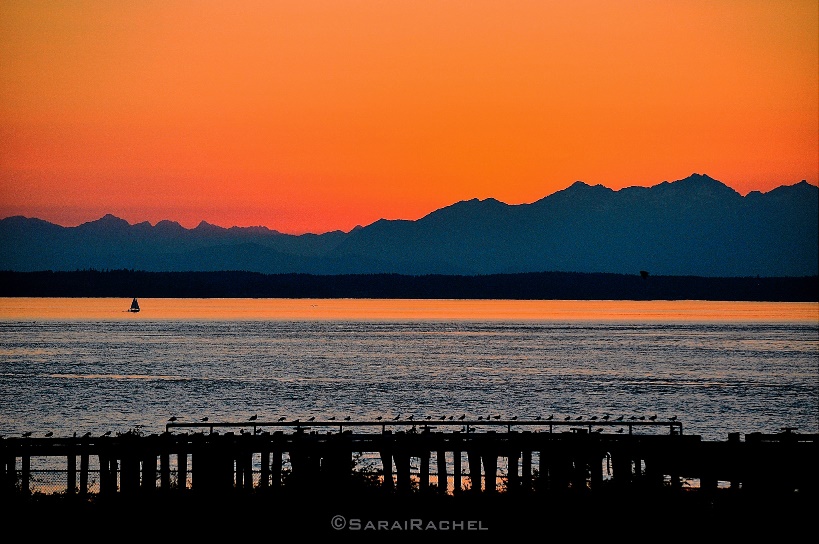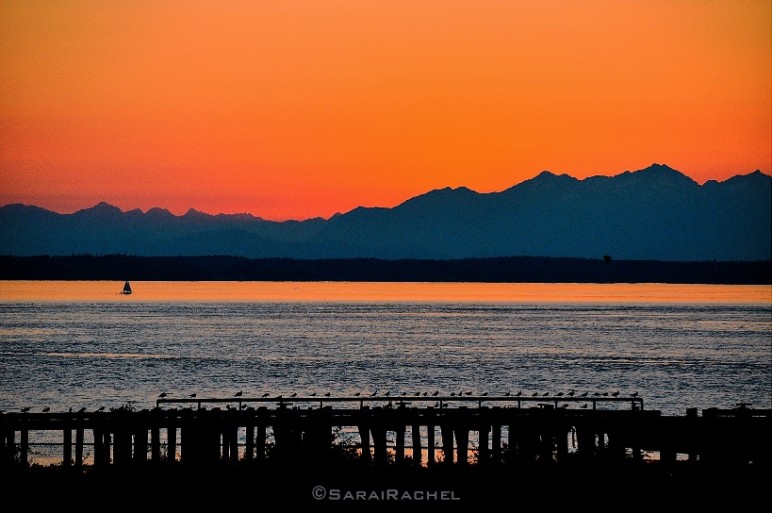In a surprise announcement, Washington Governor Jay Inslee cited his conscience when he came out in opposition to two major fracked gas infrastructure projects in his state: Tacoma LNG and Kalama methanol refining. The news, announced Wednesday, caught almost everyone by surprise, including the broad community of advocates that have been fighting the projects for years.
The Puyallup Tribe of Indians has been a major opponent of Tacoma LNG. Sited on their ancestral homeland, the tribe has argued that the project is unsafe, an affront to the global climate, and a violation of their legal rights. In a written statement, Puyallup Tribal Council Chairman Bill Sterud applauded the governor’s position.
“We welcome the governor’s strong and clear statement about the dire impacts of fossil fuels. Today he showed strong leadership on climate change.”Bill Sterud, Puyallup Tribal Council Chairman

“We welcome the governor’s strong and clear statement about the dire impacts of fossil fuels. Today he showed strong leadership on climate change.”
In early 2016, Sightline highlighted several disconcerting aspects of the project’s environmental review, raising a red flag about the precedent it set for review of fracked gas projects in Washington State. We analyzed the plant’s safety concerns and misrepresentations, provided expert witness testimony about failures in the permitting process, and requested further environmental review. Governor Inslee’s announcement highlighted the significant methane leakage associated with fracked gas production, a concern that compelled the Puget Sound Clean Air Agency to require a supplemental review of the project before it determines whether to issue a permit for construction.
Inslee’s opposition to the giant Kalama methanol project was even more surprising.
The governor was initially an enthusiastic backer of the project when it was falsely sold to the public as a clean energy solution—a way to make plastics manufacturing in China less carbon intensive. Yet the petrochemical project claims did not stand up to inquiry. And now Inslee is living up to his promises: he’s evaluated the evidence, changed his mind, and he’s taking a stand for a fossil fuel-free Washington.
It’s not clear precisely what effect Inslee’s opposition will have. Although the governor has no formal role in approving or denying permits for either project, state agencies in the executive branch tend to take cues from the governor’s office. The Department of Ecology could initiate supplemental reviews of their environmental impacts, creating delay and uncertainty for the project backers.
Sightline has helped to pull back the curtain on the true nature of the project. Proposed as the biggest gas-to-methanol facility in the world, the project is less about plastics than about serving as a fuel refinery for China’s growing fleet of vehicles. If built, it would become the state’s largest source of greenhouse gas emissions, not even counting the climate-disastrous impacts of actually burning the fuel. And it would unleash a titanic wave of fracking in northern British Columbia.
The news from the governor’s office comes just days after an Oregon state agency denied permits for the controversial Jordan Cove LNG export facility in Coos Bay. The on-again, off-again project would produce 2.2 million metric tons of greenhouse gas annually in Oregon—making it the biggest single emitter in the state. It faces bitter opposition from landowners and indigenous communities who would be affected by its 229-mile pipeline.
For all three victories, a hefty share of credit is due to the many organizations that have lent their weight to the Power Past Fracked Gas Coalition, as well as the many thousands of Northwesterners who have refused to let Cascadia become a superhighway of fossil fuels.
Collectively, this movement—the Thin Green Line—is demonstrating that even the might of the fossil fuel industry cannot stand up to those who are dedicated to a future of clean energy and climate stability.













Maria
Great news. Not only is LNG not climate-friendly, it’s quite risky to site near populated areas and other industrial facilities. How come the safety risk is not more prominent in the debate? It’s a real issue, and one would think it would resonate even more broadly than the climate ramifications.
Steve Way
Just a huge thank you for all the work you do, on this issue and others as well. Those of us in the PNW are extremely fortunate to have a resource such as Sightline in our midst.
Quill
You guys don’t even have a “Tacoma LNG” tag?!?
Kelsey Hamlin
Quill, so sorry for the misstep! I saw your comment early this morning, and promptly added those words, as separate tags, to the piece. Thanks for pointing out!
-Kelsey Hamlin, Sightline Communications Associate
Fred Millar
Good that Maria raises the safety issue. As Sightline’s excellent work on the Williams LNG accident in Plymouth WA has highlighted before, the official agencies at all levels have adopted smothering secrecy regimes that help the LNG industry claim to be “safe”.
Siting of facilities is increasingly likely to encroach on nearby populations, especially the new small scale facilities but perhaps also some of the 15 massive new LNG export facilities slated for the [first?] petrochemical industry “national sacrifice zone” on the TX and LA Gulf Coasts.
The Trump Admin in April gave draconian marching orders to the federal “safety agencies” to speed up regulations promoting LNG export, small scale LNG facilities, and unprecedented bulk transportation of fracked-gas LNG launched onto the US rail system. What could go wrong?
As DeSmogBlog’s Justin Mikulka’s incisive reporting has pointed out, we know what an admittedly too-hasty rollout of dangerous flammable trains in North America looks like — the crude by rail [CBR] unit train [technically, inaccurately termed “bomb trains”] disasters of 2012-2015. Since the downturn in those CBR accidents was due to lowering oil prices rather than the pitifully weak 2015 federal regulations on CBR, the new upsurge in CBR may produce similar evidence of reckless risk imposition in search of a fast buck with fracked oil.
The government and industry secrecy regimes have been honed over several years, and Trump is now calling for new “risk-based” agency regs within 13 months, hardly enough time for the needed crash testing of LNG rail cargoes using the available inter-modal UN T75 ISO — “portable containers” allowed in US DOT regs — jury-rigged hastily onto rail flat cars and bottomless well cars [since there is no FRA-approved new LNG-specific rail tank car as industry sees as eventually needed].
The first national experiments in “micro-LNG” liquefaction urban facilities for export and bulk LNG by rail are in AK and FL. The American LNG facility — quietly and mis-leadingly sited in the middle of Miami — already sends rail cargoes to PortMiami for export to the Caribbean. FRA allows small railroads in those states to carry LNG through their urban areas. The Miami-to-Jacksonville Florida East Coast Railroad’s consultant-produced Quantitative Risk Assessment, by design, of course completely obscures the potential LNG release consequences, the Worst Case Scenarios, beneath layers of complex [and extremely dubious] probabilistic calculations showing vanishingly small likelihoods of a serious release.
The most massive LNG accident potentials are with the huge ship LNG carriers that will call at US ports — and there are classic federal Sandia studies showing far-reaching disaster impacts [e.g., 3 miles] of a major LNG release from a ship over water. [Not so for over-land releases of LNG, e.g., from intermodal LNG containers in a rail collision in a city.] These older studies have been cited by many West Coast and East Coast US communities to defeat proposed LNG IMPORT facilities to bring in the massive LNG carriers. The new small scale EXPORT terminals will likely begin by dockside loading ISO containers onto regular cargo ships, as if LNG is no riskier than previous hazmat intermodal containers with propane, etc. Thence from Gulf Coast and Florida East Coast ports through the expanded Panama Canal to the big LNG market demand destinations in Asia: Japan, India, China — which are closest to the Canada/US Pacific NW ports, of course.
The US Coast Guard admits to being behind the curve regarding the safety and terrorism potentials of LNG loading onto ships from docks next to passenger loading onto Florida ports’ huge cruise ship industry [which by the way is converting its biggest ships to use LNG as fuel.]